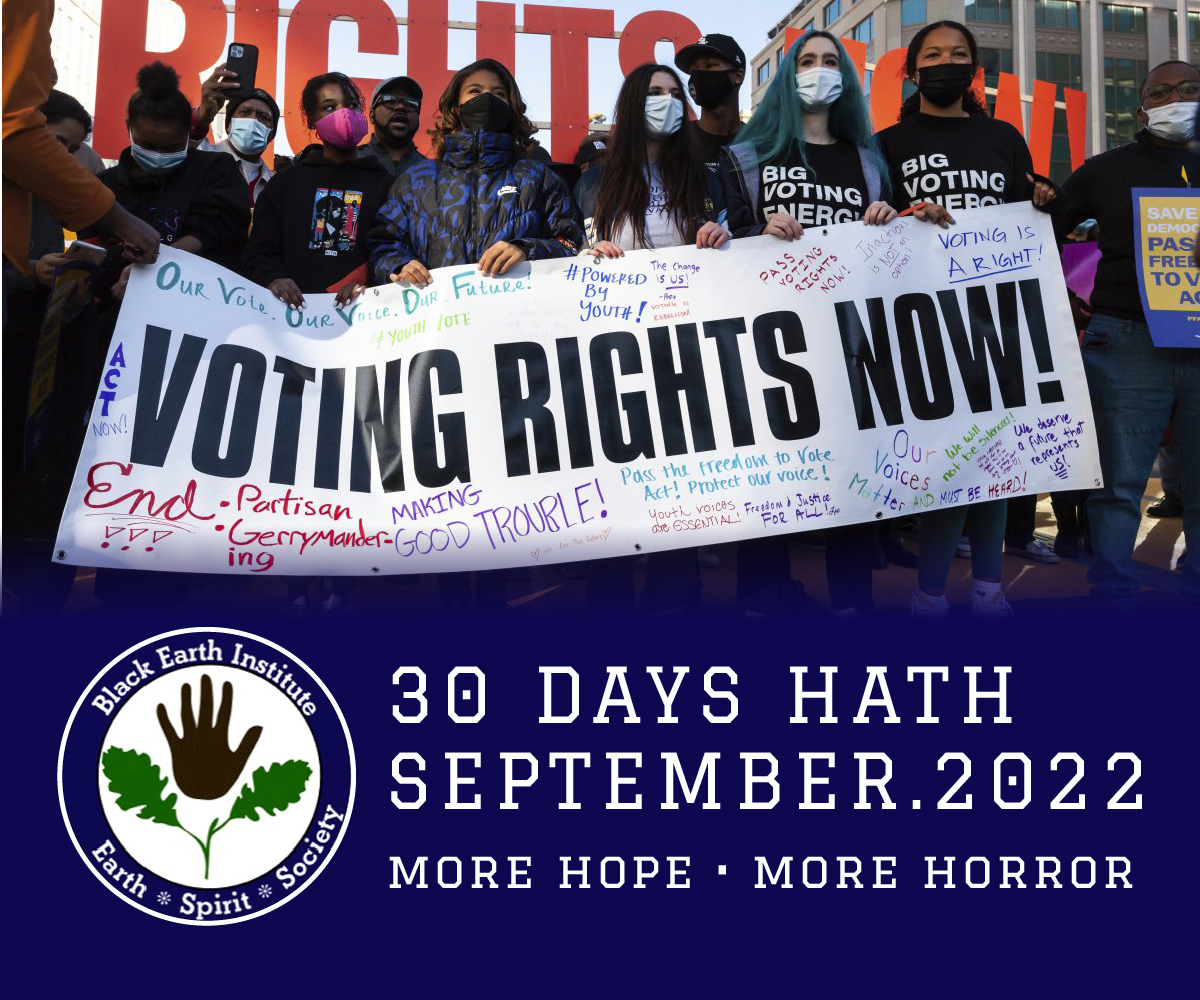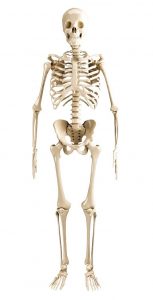
Photo credit: National Education Association
BY EUGEN BACON

An adult skeleton has 206 bones and 32 teeth, but did you know that babies are born with 300 mixtures of bone and cartilage? The cartilage hardens into bone during a process called ossification.
Blood is essential to human life. It circulates throughout our bodies in plasma, red blood cells, white blood cells, and platelets, distributing oxygen, vitamins, glucose, and amino acids that combine to make muscle-building proteins. Blood transports metabolic waste, including unwanted salts, phosphates, sulphates, and urea from our cells. A red blood cell has a lifecycle of 120 days in the body. Platelets control our bleeding, so we don’t bleed out, and white blood cells help protect us against disease.
In genetics, there are dominant and recessive alleles. Each human cell carries two copies of each chromosome, and each version of the gene is called an allele. A dominant allele (it overwhelms a recessive one) is responsible for brown eye color, broad nose, freckles, and curly hair. Recessive alleles (you need two of them) are responsible for hazel eye color, narrow nose, white skin, and straight hair. A child doesn’t have the privilege of choosing what gene it gets. Whatever it gets comes from the fusion of a sperm and an egg to form a diploid cell called a zygote. And it’s mildly complicated for mixed-race people like my son.
When you fall in love, your body releases a rush of dopamine, producing pleasurable, often euphoric feelings. Adrenaline increases blood flow from your heart to trigger the pleasure center of your brain. Norepinephrine also speeds up your heart and heightens the thrill. Your brain and body change, and you want to cuddle, you want to hug, you want to kiss. The object of your affection instills a sense of calm and security. Your blood pressure decreases; you feel less anxiety. You get butterflies in your stomach.
When you die, your brain cells shut down—they have no blood flow. In the throes of dying, you lose hunger and thirst, then speech, then vision. The last senses to go are hearing and touch. You would hear the last words of your killer if they called you a nigger as you died. This might have been the last words Ahmaud Arbery heard after being chased, hunted, and executed by Travis McMichael as Arbery lay breathless on the crimson-stained ground, nauseated, his kidney, liver, heart, lungs, and brain slowly shutting down.
Black and white babies are both born with 300 mixtures of bone and cartilage. White babies don’t get any more bones or cartilage than black ones—blood flows in both just the same. They each inherit two alleles and have no say in what eye color they get. Black and white people fall in love the same. When they die, their bodies shut off the same before they start going through autolysis or self-digestion, as their oxygen-deprived cells increase in acidity and their enzymes begin to digest cell membranes and leak out. Their skin discolors, their body temperature drops, and rigor mortis sets in, starting in the eyelids, jaws, and neck muscles. As the corpse begins to release 30 or so different chemicals, the gases and compounds produced during the decomposition process exude the rotten smell of death.
Black and white people smell the same when they die. Dead white people don’t smell like honeysuckle or stargazer lilies. Not all live white people smell that good either. I’ve met dirty white people who stink like unwashed socks. And there are goalless white people who wouldn’t know motivation if it plummeted from the sky and landed on their heads. Narcissistic white people, too—she was a kiwi, a total bitch. Cost me my job. This doesn’t mean that all white people are dirty, or goalless, or narcissistic. But white people are human, as are black people.
Black lives matter—this is the global chant that calls attention to the humanity of black people in the wake of escalating events in the United States. Emmet Till was lynched like a puppet in Money, Mississippi, in 1955 for looking at a white woman—he was human, and he felt everything. Amadou Diallo was shot and killed like a dog by four New York City plainclothes police officers who unloaded 41 bullets into his body—he was human. Ahmaud Arbery went out for a jog in Brunswick, Georgia, and was hunted like a deer, shot in broad daylight—he was human. Breonna Taylor, killed by police officers in Louisville, Kentucky—she was an emergency medical technician, only 26 when she died, shot at least eight times like a pheasant for sport in her own apartment under the pretense of a no-knock search warrant for another person. She was human, but her killers have not been charged with a crime. And George Floyd was human when he suffocated in Minneapolis, Minnesota, begging the officer who drove a knee into the back of his neck for air. “I can’t breathe,” George wheezed … and died.
But racism is not confined to the US and its history of enslaving black people. Australia has a shameful legacy (less scrutinized compared to racism in the US) in its treatment of Aboriginal people. A National Sorry Day won’t bring back the stolen generation. This is the horrific capacity of the human condition. Snatch children from their mothers’ breasts in the name of racial supremacy and assimilation. Forcibly remove them from their black families. Surround them with whiteness to protect them from becoming more “native.”
I am a mother of a colored child. I see him as caramel; others may only see black. I don’t want to lose this boy to racism. I don’t want him hurt by a judicial system created to “protect” him, by a police officer with an eager baton, keen rubber bullets, tasers, or gas masks. We need to hold people in authority accountable. We need to hold our leaders accountable. Most of all, we need to hold ourselves accountable.
What, when, and where is racism today? Is it a thing of the past or an ever-evolving monster of the future? Ask yourself this question when you’re shortlisting candidates for a job. Ask yourself this question when you’re assessing applications for a business loan. Ask yourself this question when you’re wondering how best to “safely” introduce your partner of color to your family. Ask yourself this question when you’re out jogging in your neighborhood and no one is hunting you down with shotguns like an animal, as they did Mr. Arbery.
Ask yourself these questions: How often do people give you a wary eye for the color of your skin? How often do people ask you where you are from even though you’re right where you belong? Do you feel compelled to write under a pseudonym, withhold your profile photo, or use an icon, lest your native-sounding name and colored face are not relatable to a particular readership? Does the supermarket guard reliably ask you to open your bag because he thinks you might have stolen something? Does airport security frequently pull you aside for a chemical test? That sweet old lady clutching her bag and walking faster, hastily taking a detour when you stroll behind her—is it because you “look” suspect?
Racism is when your son comes home from school with big eyes, looks at himself in the mirror, and asks you in a small voice “what color is best” because some bully said something about his appearance. Racism is when, years later, some white girl won’t date him because he’s black but others will because he’s “exotic.” Racism is when strangers call you “Zimbabwe” (despite your real birthplace) or Barack Obama’s sister (despite having no relationship with or connection to the Obamas). Racism is when you’re exceedingly qualified for a job that goes to a white person because they’re a “better fit.” Racism is any discrimination against somebody who doesn’t look like you, speak like you—black, yellow, or white.
This is one way to make it right: acknowledge the harm. If you’re thinking you don’t want to go there—please go there. Emerge from the margins, take a stand. Doing nothing is being complicit. Do better for black people. Do better for ethnic minorities. We are your friends, your partners, your colleagues. It’s time to listen, to hear pleas that say, “We are done dying. We are done surviving. We want to live.”
Black lives matter—not because others don’t, but because others won’t if black lives don’t.
“Do not think there are no crocodiles just because the water’s calm.” Black people have many proverbs like this one, passed down from elders we respect. We raise our children to have values, and we ask our ancestors to guide them. Another proverb goes: “He that beats the drum for the mad man to dance is no better than the mad man himself.” We need great leaders of the modern world, people like Nelson Mandela, Martin Luther King Jr., and Abraham Lincoln. Amid the racial unsettlement impacting the US and the rest of us, our world is also subject to the buffoonery of America’s political experiment, which may be the work of the dumbest mad scientist to ever exist in fiction or reality.
We are done with misguided leadership. If you’re a leader with a brain the size of a rat, a mouth the size of Uranus, now is the time to shut up and not tweet.
And you voters, you are beholden to the world—it’s your right, and ours, that you choose leaders of character, people with ethics.
Science says that black and white people are the same. Please, oh please, let’s stay on top of it. Give us the benefit of our humanity.
This article is a tribute to Black Lives Matter.
First published in The Blue Nib, June 2020
Also published in Eugen Bacon’s debut essay collection, An Earnest Blackness, Anti-Oedipus Press, August 2022

